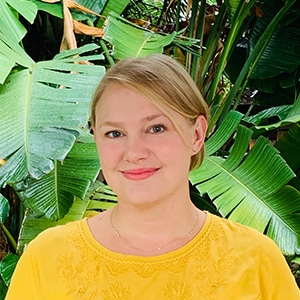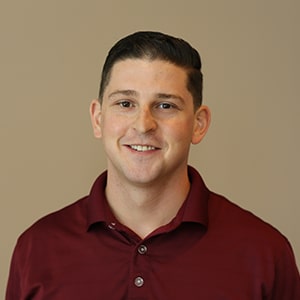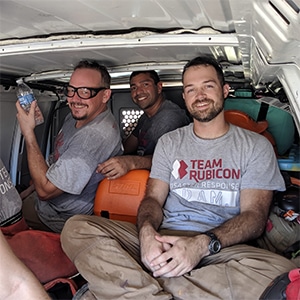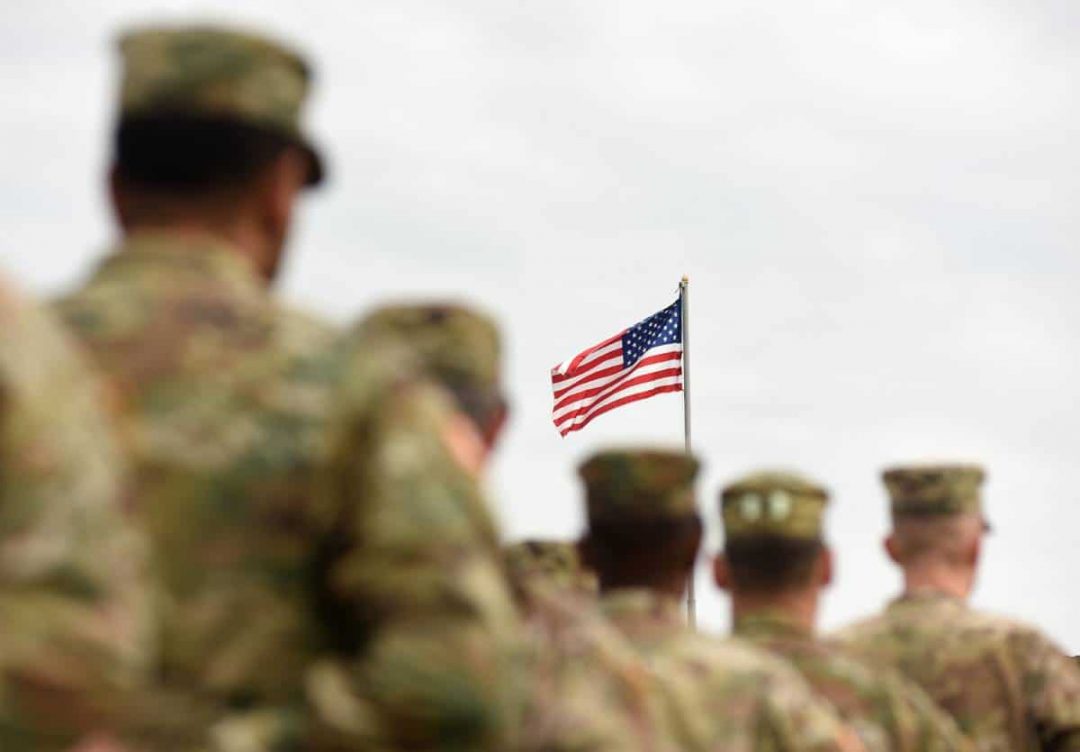Why veterans should consider an MBA
As military members transition to civilian life, an important question often arises – what next? If you’re currently deciding what your next step will be, you might be considering supplementing your education with an MBA to help prepare you for life after serving in the United States Armed Forces. But what exactly will you gain from an MBA? In this story, we spoke with current UF MBA students who are veterans about why they decided to pursue an MBA and how their business education is benefitting them in their lives.
After you read about how they benefitted from an MBA, request information about how you can do the same.

Andrea Rivera, BA Mathematics ’04 (San Diego State University), MS Applied Mathematics ’06 (San Diego State University), MBA ’20 – Adjunct Math Professor, Broward College
As a surface warfare officer in nuclear power in the United States Navy, Andrea Rivera developed strong leadership and engineering skills. When she transitioned out of the Navy, she knew she would need additional knowledge in business management in order to be successful in her future career.
“I was unfamiliar with accounting, finance, project management, corporate structure and other traditional business applications,” she said. “While I was in the Navy, these weren’t really relevant to my career but I knew that if I wanted to succeed as an engineer in the civilian sector, I would have to develop the more traditional business skills.”
Understanding that her next step was additional education in business lead Rivera to the UF MBA Weekend Professional Two-Year South Florida program, and she hasn’t looked back since, even with a busy life that includes an active duty husband, four children and a job teaching math at Broward College.
“Getting my MBA at UF has been one of the best decisions I’ve made,” she said. “I truly had no idea how many mathematical applications there are in business and how much I would enjoy business analytics. The professors are top-notch and my peers are nothing less.”
Having already experienced many of the benefits of the UF MBA program in South Florida, Rivera said she would recommend that other veterans consider an MBA.
“There are some skills that the military does a great job at developing. Veterans typically leave the military with strong leadership skills, the ability to multitask, work independently and think logically,” she said. “However, there are many business applications that service-members are never exposed to but are necessary to be successful in a civilian organization. An MBA is an excellent way for veterans to learn traditional business skills that they can apply in the civilian sector to ensure their success moving forward.”

Daniel Faulkner, BS Political Science (North Dakota State University) ’11, MBA ’19 – Supply Chain Manager, TECT Power
After four and a half years as an active duty member of United States Army, Daniel Faulkner transitioned to civilian life while remaining a commissioned officer in the Individual Ready Reserve. He quickly realized his business knowledge wasn’t up to par with that of his colleagues as he entered the world of private business.
“I felt as if I were a step or two behind my peers in business acumen,” he said. “While having significant leadership experience and responsibility as a junior officer in the military, I would soon realize that it did not translate to a walk-in-the-park transition into private business.”
Faulkner recognized the importance of not only needing a keen sense of business to be successful in his industry, but also the value of a strong network, both of which he would gain by pursuing his degree in the UF MBA Weekend Professional Two-Year program.
Since his enrollment in the UF MBA program, he’s already been able to put his business education to work. When Faulkner was asked by his company’s CEO to serve on a technology strategy team to identify and develop its manufacturing centers’ value propositions and differentiations, he felt confident he could complete the task after taking Dr. Joe Alba’s Problems and Methods in Marketing Management course.
“Previously, if you would have asked me what a value proposition was, frankly, I would have stared back at you clueless!” he said. “Without Dr. Alba’s class, I would have had zero input to provide my team in developing their strategies.”
Faulkner believes that other veterans could benefit like he has from the UF MBA program as well.
“The UF MBA staff does a top-notch job in the Professional program in taking care of every detail that many professional students may not have the bandwidth to focus on with professional requirements to juggle,” he said. “I have also benefitted from the network of other veterans and current service members in my cohort. With our mutual backgrounds, we typically connect and understand the challenges one another may face in the private sector.”

Adam Despang, BS Engineering Psychology ’13 (United States Military Academy – USMA), MBA ’20 – Florida Logistics Lead, Team Rubicon
For four and a half years after he graduated from West Point, Adam Despang served in the United States Army Field Artillery. As he transitioned out of the Army, Despang saw higher education as a way to prepare himself for the private sector.
“I chose USMA because it was the best institution to prepare me to lead soldiers,” he said. “Similarly, I chose to get an MBA from the University of Florida to prepare myself for business in the best way I saw fit. Curricula at both USMA and UF are broad, and thus prepare graduates for diverse careers.”
As a member of the Weekend Professional Two-Year program, Despang is able to continue in his role at disaster relief non-profit Team Rubicon, most recently aiding those affected by Hurricane Dorian in the Bahamas, and start an internship with the U.S. Department of State in the Bureau of Energy. Despang feels the knowledge he’s gained from UF MBA has already been beneficial in his professional life.
“I’m using my knowledge gained thus far from the UF MBA to think bigger in my current role and communicate my ideas more effectively while backing them up with data presented in a persuasive way,” he said.
Despang recommends that veterans who are interested in an MBA should choose a veteran friendly school and degree program that fits their goals and interests.
“If a veteran is interested in business in any capacity, or in a degree program that facilitates professional development in a variety of beneficial subjects, then an MBA program is a good fit,” he said.




